For centuries, people have turned to nature not only for nourishment and beauty but also for spiritual and symbolic value. Across cultures and traditions, certain plants are believed to attract prosperity, fortune, and good energy. These botanical symbols of wealth aren’t just ancient folklore; even modern homes and workplaces now incorporate these plants for their aesthetic value and spiritual significance.
In this article, we’ll explore the top plants that represent prosperity and fortune, their origins, cultural relevance, and how to care for them so you can invite abundance into your life—naturally.
1. Money Plant (Epipremnum aureum)
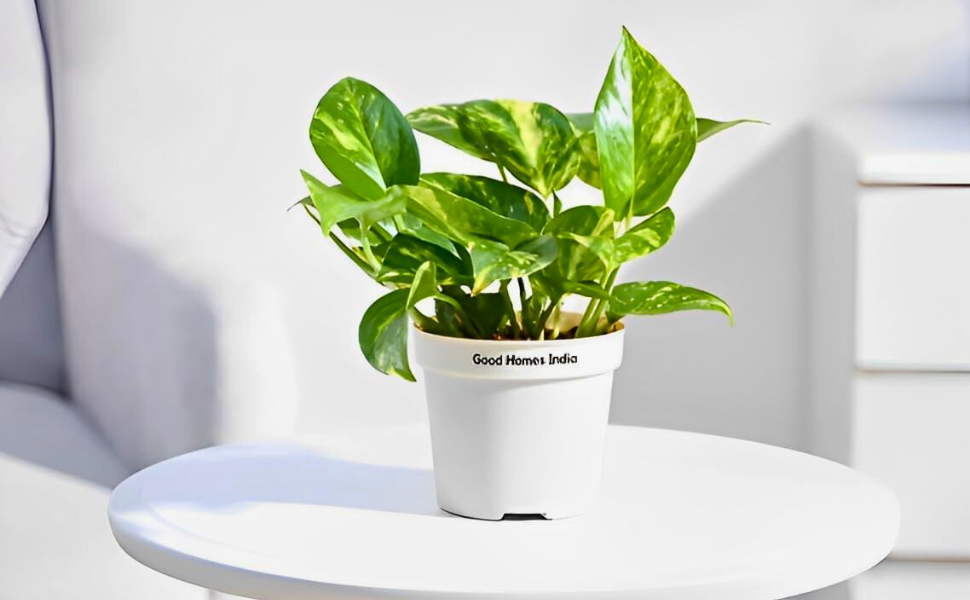
Cultural Origin: Vastu Shastra (India), Feng Shui (China)
Symbolism: Wealth, prosperity, financial success
The Money Plant, commonly known as Pothos, is perhaps the most popular symbol of wealth in Indian and Chinese homes. Vastu and Feng Shui suggest that placing a money plant in the southeast direction of your home can invite financial abundance. Its lush green, heart-shaped leaves are said to attract positive energy and reduce stress.
Care Tips:
- Thrives in indirect sunlight
- Water moderately, allowing the soil to dry between waterings
- Grows well in soil or water
2. Jade Plant (Crassula ovata)
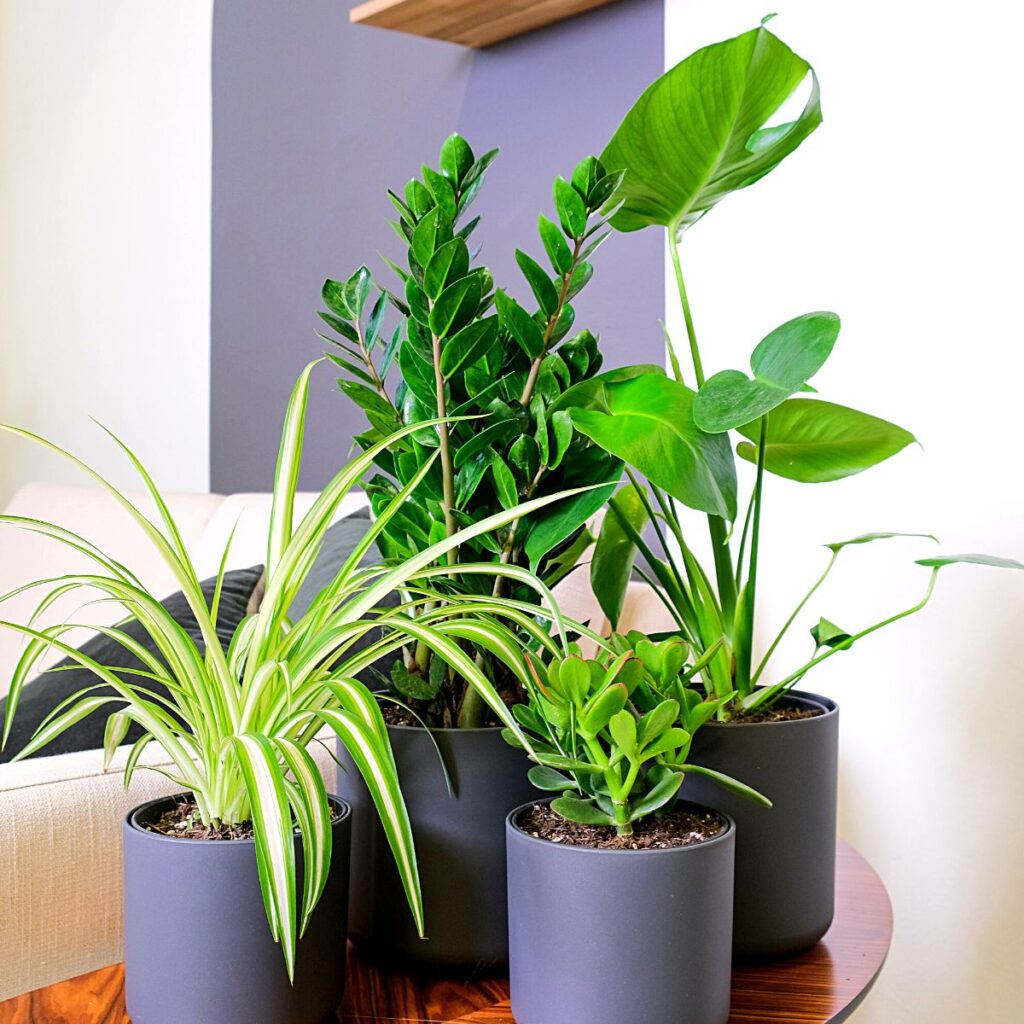
Cultural Origin: Feng Shui
Symbolism: Good luck, business success, wealth
Often referred to as the “Friendship Plant” or “Money Tree,” the Jade Plant is a staple in Chinese households and businesses. It’s a popular gift during the Chinese New Year, symbolizing growth and renewal. Thick, coin-shaped leaves symbolize financial gain.
Care Tips:
- Prefers bright, indirect light
- Water only when the soil is dry
- Avoid overwatering to prevent root rot
3. Lucky Bamboo (Dracaena sanderiana)
Cultural Origin: China
Symbolism: Health, wealth, harmony, and luck
Lucky Bamboo isn’t actually bamboo but a resilient plant that’s long been associated with Feng Shui practices. The number of stalks carries different meanings—three stalks represent happiness, five represent health, and eight represent wealth.
Care Tips:
- Grows well in water or soil
- Place in indirect light
- Add clean water every 7–10 days
4. Basil (Ocimum sanctum/Tulsi)
Cultural Origin: India
Symbolism: Spiritual purity, prosperity, divine protection
Tulsi, or Holy Basil, is revered in Indian homes for its sacred significance and medicinal value. According to Vastu, placing Tulsi in the northeast direction can bring harmony and prosperity to the family. It is also believed to purify the environment and ward off negativity.
Care Tips:
- Needs full sunlight for at least 6 hours
- Water daily in summer, sparingly in winter
- Ideal for growing in earthen pots
5. Rubber Plant (Ficus elastica)
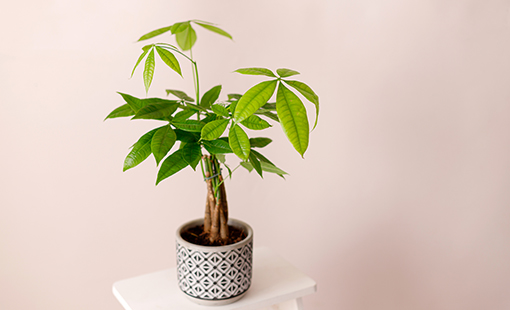
Cultural Origin: Southeast Asia
Symbolism: Wealth, abundance, and resilience
The Rubber Plant’s large, dark green leaves represent richness and affluence. It’s a great option for minimalists who want a low-maintenance prosperity plant that also purifies air.
Care Tips:
- Needs bright, indirect sunlight
- Water weekly; keep soil slightly moist
- Wipe leaves regularly to remove dust
6. Orchids
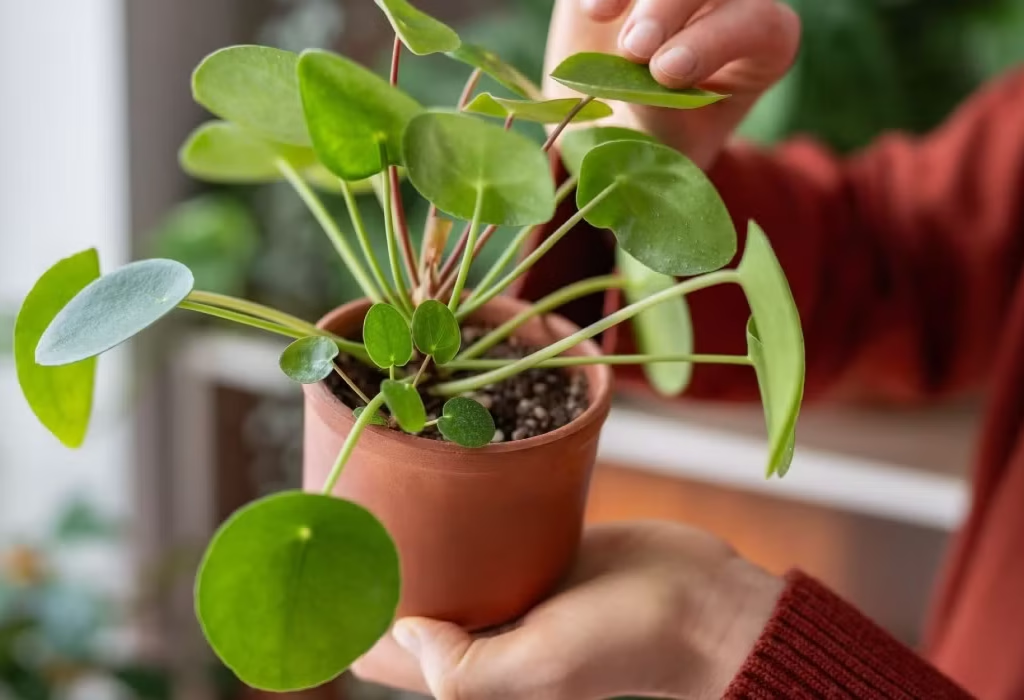
Cultural Origin: Ancient Greece and Asia
Symbolism: Luxury, love, abundance, and success
Orchids are more than just exotic flowers. In Feng Shui, they symbolize fertility, abundance, and wealth, especially when placed in the bedroom or living room. They’re also associated with perfection and inner growth.
Care Tips:
- Indirect sunlight is best
- Water once a week
- Keep in a well-ventilated area
7. Snake Plant (Sansevieria trifasciata)
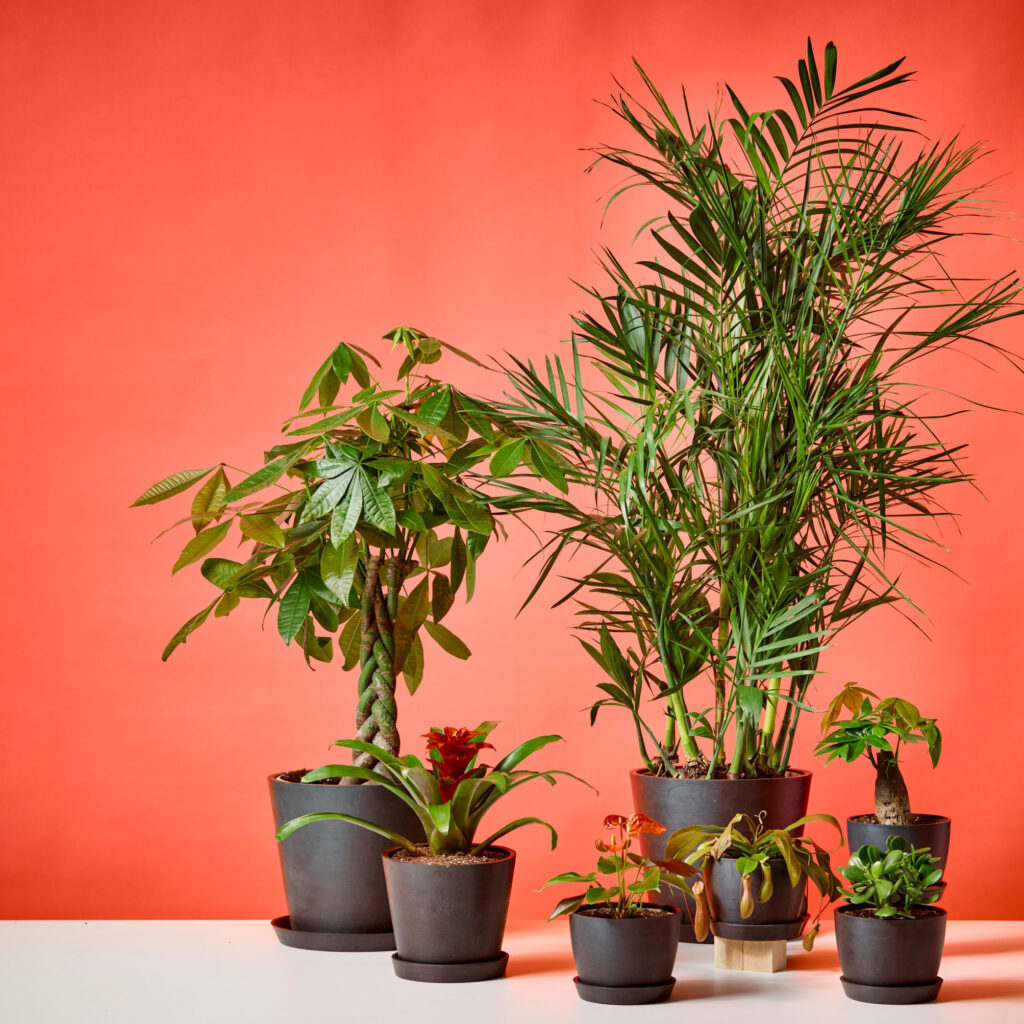
Cultural Origin: Africa, adopted in Feng Shui
Symbolism: Protective energy, financial stability
While it’s known for its air-purifying abilities, the Snake Plant also holds symbolic significance in Feng Shui. It is believed to absorb negative energies and create a shield of prosperity. Its upright leaves signify growth and resilience.
Care Tips:
- Thrives in low light and neglect
- Water sparingly; drought-tolerant
- Avoid overwatering to prevent root rot
8. Citrus Trees (e.g., Orange, Lemon, Lime)
Cultural Origin: China and Mediterranean regions
Symbolism: Prosperity, abundance, and success
Small citrus trees are especially popular during Lunar New Year celebrations. Oranges and tangerines, in particular, are thought to bring wealth and happiness. Their round shape and golden color are linked to coins and treasure.
Care Tips:
- Requires full sunlight (at least 6 hours)
- Needs well-drained soil
- Fertilize regularly during growing season
9. Peace Lily (Spathiphyllum)
Cultural Origin: Global recognition through Feng Shui
Symbolism: Spiritual growth, prosperity, tranquility
The Peace Lily is associated with positive energy, balance, and harmony. It’s believed to cleanse indoor air and attract wealth when placed in the home office or living room.
Care Tips:
- Needs indirect light
- Keep soil consistently moist
- Wipe leaves to ensure better photosynthesis
10. Dwarf Banana Plant (Musa spp.)
Cultural Origin: South Asia and Southeast Asia
Symbolism: Fertility, prosperity, and eternal growth
In Indian tradition, the banana plant is sacred and used in religious rituals. It symbolizes prosperity, fertility, and the continuous cycle of life. Even the leaves are considered auspicious during housewarming and festival occasions.
Care Tips:
- Requires bright sunlight
- Water generously in warm months
- Needs rich, loamy soil
How to Use These Plants for Maximum Effect
To amplify the positive energy these plants are believed to bring, consider the following placement tips based on Vastu and Feng Shui principles:
- Entrance Area: Money Plant, Rubber Plant, Lucky Bamboo
- Living Room: Peace Lily, Orchids, Snake Plant
- Office Desk: Jade Plant, Lucky Bamboo
- Balcony or Courtyard: Citrus Trees, Banana Plant, Tulsi
- Bedroom: Orchids, Snake Plant (for improved air quality)
Final Thoughts
Choosing the right plants for your home is not just about decoration—it’s about intention. Whether you believe in their spiritual power or simply admire their beauty, these prosperity plants can enhance your space with life, color, and meaning.
As you introduce these green companions into your home, remember that true abundance begins with care. Tending to your plants is a form of mindfulness that not only fosters growth in your garden but also within yourself.
So, go ahead and plant your prosperity!
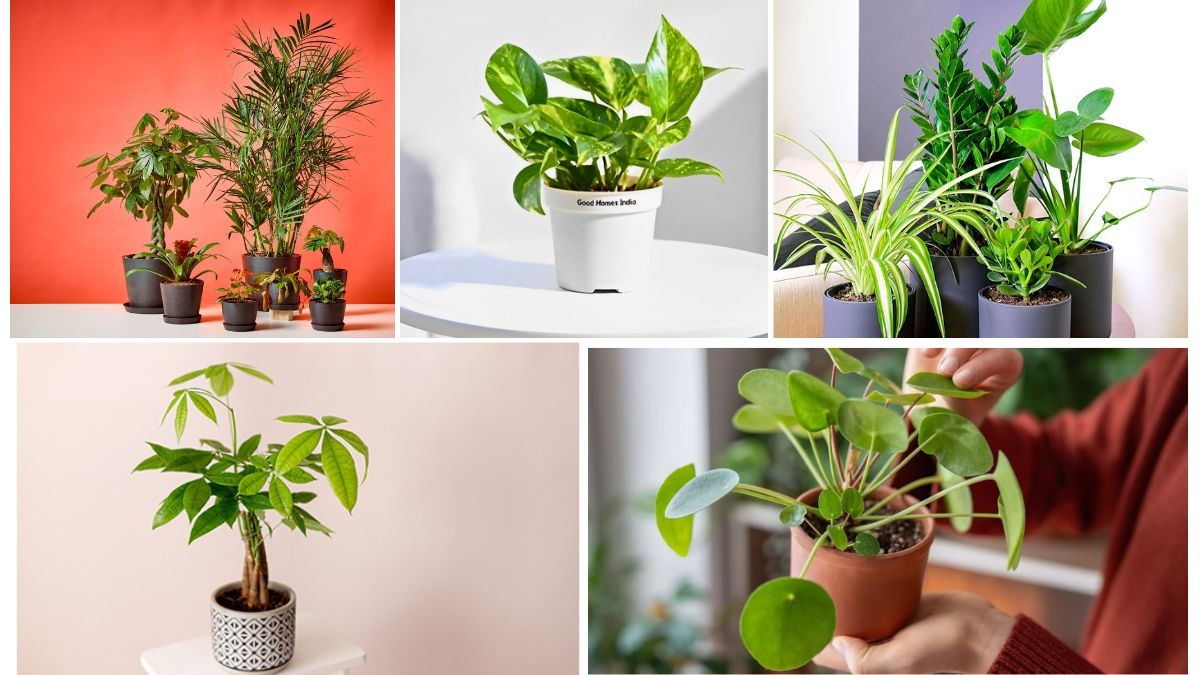





Leave A Comment